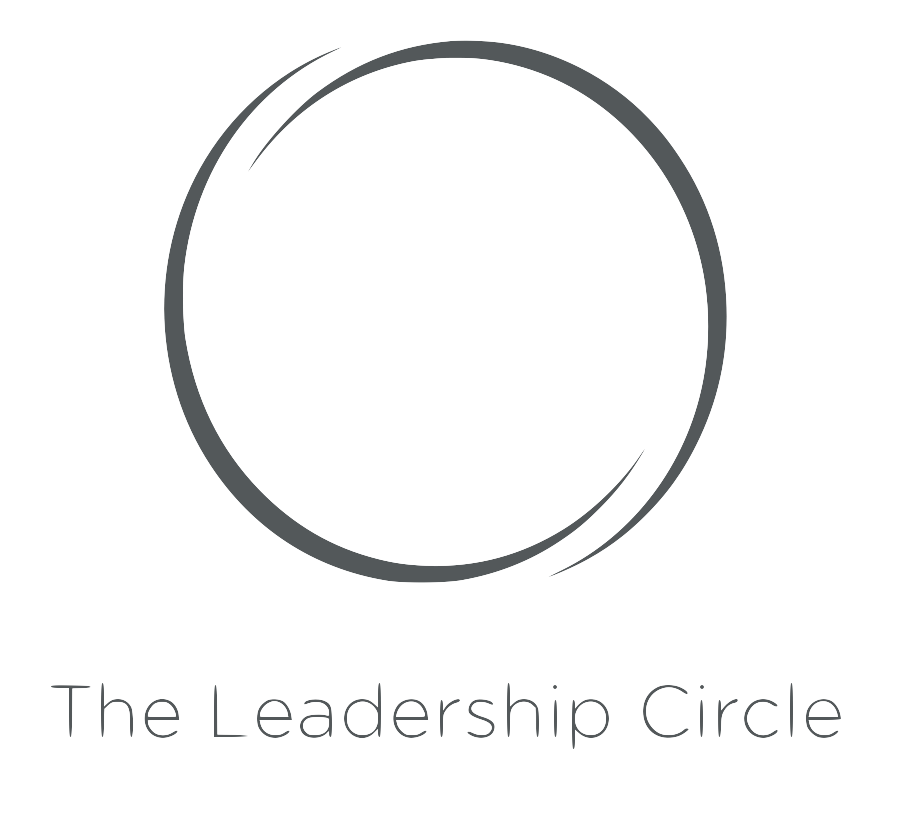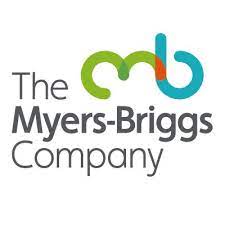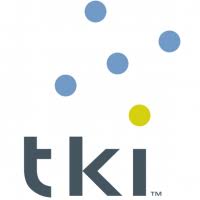MBTI® Step I
The MBTI® Step I personality assessment identifies a person's type (made up of four basic preferences), and provides a common language around how people interact with others and the world around them. This information helps people improve both their personal and professional relationships in a constructive way.
MBTI® Personal Impact Report
Helps facilitate development sessions by applying personalised MBTI® type knowledge to eight key development areas.
The Personal Impact Report is a powerful catalyst for comprehensive and long-lasting development. It provides a personalized framework for development that a person can use throughout their career.
MBTI® Personal Impact Report Content
The MBTI® Personal Impact Report covers eight development areas:
Your Work Style.
Your Communication Style.
Your Team Style.
Your Decision-Making Style.
Your Leadership Style.
Your Conflict Style.
Your Approach to Change.
How Stress Impacts You.
MBTI® Personal Impact Report Uses
Development and/or coaching programmes which aim are to explore any of the eight development areas featured in the report.
Help clients in their personal MBTI® Development Journey, where type will be used to support learning.
Re-engage users who think that they’re already “done” the MBTI®.
How to access the MBTI® Personal Impact Report
The MBTI® Personal Impact Report is based on MBTI® Step I results and can be generated from either the MBTI® Step I or Step II questionnaire. Using the MBTI® Step II questionnaire enables a user to start their MBTI® Development Journey by exploring Step I preferences, and continue to Step II without the need to complete a further questionnaire.
If a respondent’s best-fit type differs from their reported type, a new Best Fit Version of the report can be generated at no extra cost.
Download Sample Report (PDF)MBTI® Profile Report
Basic profile containing personalised information about Type and associated MBTI® characteristics.
MBTI® Profile Report Content
MBTI® preferences.
Basic information – Type characteristics, clarity of reported preferences.
MBTI® Profile Report Use
As an entry-level introduction to personality type.
With other reports, such as the MBTI® Team Report.
* Please note that the MBTI® Profile Report is not tailored for focused development work. Application areas, discussion points or action plans associated with the respondent’s reported Type are not included, and unlike many higher-value reports – such as the MBTI® Personal Impact Report and the MBTI® Interpretative Report for Organisations – there is no best-fit version of the MBTI® Profile Report
Download Sample Report (PDF)MBTI® Career Report
Helps individuals find their ideal career.
The 10-page Career Report is ideal for clients looking to analyze career options based on their personality preferences. This report explores preferred tasks and work environments – plus the most and least popular occupations – for any MBTI® type, and provides insights for improving job satisfaction.
What the MBTI® Career Report Contains
Expansive coverage of popular job fields, such as business, healthcare, computer technology, and high-level executive and management occupations.
When to use the MBTI® Career Report
Career transition and planning.
Career counseling and outplacement.
General personal development.
How to access the MBTI® Career Report
The MBTI® Career Report is based on MBTI® Step I results and can be generated from either the MBTI® Step I or Step II questionnaire. Using the MBTI® Step II questionnaire enables a user to start their MBTI® Development Journey by exploring Step I preferences, and continue to Step II without the need to complete a further questionnaire.
If a respondent’s best-fit type differs from their reported type, a new Best Fit Version of the report can be generated at no extra cost.
Download Sample Report (PDF)MBTI® Interpretive Report
Helps explore individuals' MBTI® Type and its influences in the workplace.
Use the 6-page Interpretive Report as a concise yet thorough interpretation of your client’s MBTI® results. It explores the pattern of preferences unique to your client’s type, explains clarity of preference and what it means, and offers tips for verifying type.
What the MBTI® Interpretive Report Contains
An outline of MBTI® preferences.
An easy-to-use overview of type preferences.
A brief discussion of personality type and type development.
An extensive description of the client’s four-letter type.
When to use the MBTI® Interpretive Report
As an early introduction to personality Type.
With other reports, such as the MBTI® Team Report.
MBTI® Interpretive Report for Organizations
Allows to build on employee strengths and develop target areas relevant to the organisation.
Use the 10-page Interpretive Report for Organizations to discover how an individual’s MBTI® type may be expressed in an organizational setting.
What the MBTI® Interpretive Report for Organizations Contains
The effects of an individual’s work style and preferences in work settings.
Preferred styles of communication.
Preferred approach to problem-solving.
When to use the MBTI® Interpretive Report for Organizations
Developing leadership.
Improving communication.
Enhancing problem-solving.
How to access the MBTI® Interpretive Report for Organizations
The MBTI® Interpretive Report for Organizations is based on MBTI® Step I results and can be generated from either the MBTI® Step I or Step II questionnaire. Using the MBTI® Step II questionnaire enables a user to start their MBTI® Development Journey by exploring Step I preferences, and continue to Step II without the need to complete a further questionnaire.
If a respondent’s best-fit type differs from their reported type, a new Best Fit Version of the report can be generated at no extra cost.
Download Sample Report (PDF)MBTI® Communication Style Report
Improves Individual and Team Communication Skills.
The Communication Style Report can be used to help clients better understand their communication style, as well as that of their colleagues, to help improve overall communication skills. This 9-page report helps clients understand their communication strengths, offers practical tips for communicating with others, and suggests steps for development.
What the MBTI® Communication Style Report Contains
Preferred styles of communication based on four-letter MBTI® type results.
Practical tips for communicating with others.
Steps for improving communication skills.
When to use the MBTI® Communication Style Report
Improving communication skills.
As a tool to assist conflict management.
Team building.
Developing personal effectiveness.
How to access the MBTI® Communication Style Report
The MBTI® Communication Style Report is based on MBTI® Step I results and can be generated from either the MBTI® Step I or Step II questionnaire. Using the MBTI® Step II questionnaire enables a user to start their MBTI® Development Journey by exploring Step I preferences, and continue to Step II without the need to complete a further questionnaire.
If a respondent’s best-fit type differs from their reported type, a new Best Fit Version of the report can be generated at no extra cost.
Download Sample Report (PDF)MBTI® Report for Healthcare Professionals
Specific for Healthcare Professionals, provides insights to better understand the viewpoint, needs and approach to care required by patients.
Use the MBTI® Report for Healthcare Professionals to improve the quality of a patient’s care and overall hospital experience. This report provides insights into how you deliver information to and spend time with patients, and gives recommendations for flexing care style to encourage better interactions with patients.
What the MBTI® Report for Healthcare Professionals Contains
Actionable insights that can support a shift in expressed behaviours to help improve interactions with patients.
Advice for managing workplace stress.
Information on how personality preferences impact style of care.
When to use the MBTI® Report for Healthcare Professionals
The report can help doctors, nurses, healthcare assistants and other clinical staff involved in patient care who want to increase their communication effectiveness to:
Help patients be better informed.
Create a supportive environment.
Show patients that they are being listened to.
Help patients manage the side effects of treatment.
Support post-care transition.
How to access the MBTI® Report for Healthcare Professionals
The MBTI® Report for Healthcare Professionals is based on MBTI® Step I results and can be generated from either the MBTI® Step I or Step II questionnaire. Using the MBTI® Step II questionnaire enables a user to start their MBTI® Development Journey by exploring Step I preferences, and continue to Step II without the need to complete a further questionnaire.
If a respondent’s best-fit type differs from their reported type, a new Best Fit Version of the report can be generated at no extra cost.
Download Sample Report (PDF)MBTI® Team Report
Helps team-building by exploring the impact of type on how teams work, specifically in problem-solving, communication and conflict.
This 16-page report offers additional resources to promote team cooperation, efficiency, and productivity. It includes a summary of the team’s personality type, team strengths and challenges, the individual’s contributions to the team, and discussions on the organization’s influence on the team.
What the MBTI® Team Report Contains
Facilitator report with tips for putting learning into practice.
Advice for improving problem-solving, communication, and conflict management.
Team evaluation: team Type, team strengths, and team blind spots and development areas.
Individual evaluation: strengths and potential blind spots of individuals in relation to the team.
When to use the MBTI® Team Report
Developing cooperative and productive teams.
Improving overall functioning of a team.
How to access the MBTI Team Report
Each team member needs to have established their Best-fit Type by taking the MBTI® questionnaire and having a feedback session
Once you have everyone’s Best-fit Type, you can order the MBTI® Team Report. * Please note that one Team Report must be purchased for each team member
A single report for one team member cannot be produced in isolation: if new team members need to be added to the report at a later stage, you need to generate and pay for a complete Team Report. * Please note that the Facilitator Report is part of the package, and is not available to order separately.
MBTI® Decision-Making Style Report
Use this report to explore individuals' decision-making style and help them make better decisions.
This 9-page report helps individuals become better decision makers by alerting them to their decision-making strengths, potential challenges, and areas for development. It explains how type dynamics influence their style and offers key questions to consider during the decision-making process to facilitate more comprehensive decisions.
What the MBTI® Decision-Making Style Report Contains
What to consider when presented with a difficult decision.
Insights and suggestions to guide further coaching and development.
How to work with others for decision-making assistance.
How individuals can flex their style to improve communication with others and enhance their decision-making.
When to use the MBTI® Decision-Making Style Report
Improving decision-making.
Leadership development.
Effective management.
How to access the MBTI® Decision-Making Report
The MBTI® Decision-Making Report is based on MBTI® Step I results and can be generated from either the MBTI® Step I or Step II questionnaire. Using the MBTI® Step II questionnaire enables a user to start their MBTI® Development Journey by exploring Step I preferences, and continue to Step II without the need to complete a further questionnaire.
If a respondent’s best-fit type differs from their reported type, a new Best Fit Version of the report can be generated at no extra cost.
Download Sample Report (PDF)MBTI® Stress Management Report
Helps individuals learn to better manage stress, minimising its impact and achieve success.
The Stress Management Report helps individuals recognize the circumstances, situations, or events that are likely to trigger stress reactions and provides information and tips on how to deal most effectively with the challenges they present. This 9-page report details the signs of stress for an individual’s type, describes the impact of stress on personality characteristics, provides do’s and don’ts for handling stress and leveraging natural strengths, and suggests approaches for tapping others for support.
What the MBTI® Stress Management Report Contains
A summary of the client’s MBTI® results.
Client’s natural and stressed personality characteristics.
How a client’s stressed personality is triggered.
Tips on handling stress reactions and learning from them.
Recommendations for how others can help minimize stress.
When to use the MBTI® Stress Management Report
Stress management.
Leadership development.
Improving teams.
Effective management.
Coaching.
How to access the MBTI® Stress Management Report
The MBTI® Stress Management Report is based on MBTI® Step I results and can be generated from either the MBTI® Step I or Step II questionnaire. Using the MBTI® Step II questionnaire enables a user to start their MBTI® Development Journey by exploring Step I preferences, and continue to Step II without the need to complete a further questionnaire.
If a respondent’s best-fit type differs from their reported type, a new Best Fit Version of the report can be generated at no extra cost.
Download Sample Report (PDF)MBTI® Comparison Report: Work Styles
Helps people learn how to work together effectively and build on their combined strengths.
Use the MBTI® Comparison Report: Work Styles to enhance two-way communication in your organization. By helping any two individuals learn to use their similarities and differences productively and build on their combined strengths, this new report unlocks greater understanding, contributes to conflict reduction, and paves the way to better workplace relationships and organizational performance.
What the MBTI® Comparison Report: Work Styles Contains
Paired comparison of any two persons’ MBTI® types to identify similarities and potential blind spots.
Insights in four major development areas – communication style, information gathering, decision-making, and project management.
A suggested joint action plan.
When to use the MBTI® Comparison Report: Work Styles
Improving working relationships.
Conflict management.
Management development.
How to access the MBTI® Comparison Report: Work Styles
The MBTI® Comparison Report: Work Styles is based on MBTI® Step I results and so can be generated from either the MBTI® Step I or MBTI® Step II questionnaire.
Each respondent needs a separate MBTI® report to find their reported type (either the Profile Report or Interpretive Report for Organisations), plus a feedback session to help them arrive at their best-fit type.
Once a practitioner has both users’ best-fit type, they can order the report. Please note that the process uses two report credits, and one report is delivered which can be distributed to both respondents.
Download Sample Report (PDF)MBTI® Conflict Style Report
Helps individuals manage conflict and enhance relationships.
The 11-page MBTI® Conflict Style Report provides a detailed overview of an individual’s conflict style with specific information on key strengths and likely conflict triggers as well as a description of potential blind spots and areas for further development. This report also explains characteristics of different conflict styles, and offers insights into how others may view – and want to address – a conflict situation.
What the MBTI® Conflict Style Report Contains
A summary of participants’ Myers-Briggs type and conflict style.
Understanding others in conflict.
The conflict management model and developing your conflict. management style.
Tips for dealing with other conflict styles.
When to use the MBTI® Conflict Style Report
Conflict management.
Leadership development.
Improving team performance.
Effective management.
Coaching.
How to access the MBTI® Conflict Style Report
The MBTI® Conflict Style Report is based on MBTI Step I results and can be generated from either the MBTI® Step I or Step II questionnaire. Using the MBTI Step II questionnaire enables a user to start their MBTI® Development Journey by exploring Step I preferences, and continue to Step II without the need to complete a further questionnaire.
If a respondent’s best-fit type differs from their reported type, a new Best Fit Version of the report can be generated at no extra cost.
Download Sample Report (PDF)






